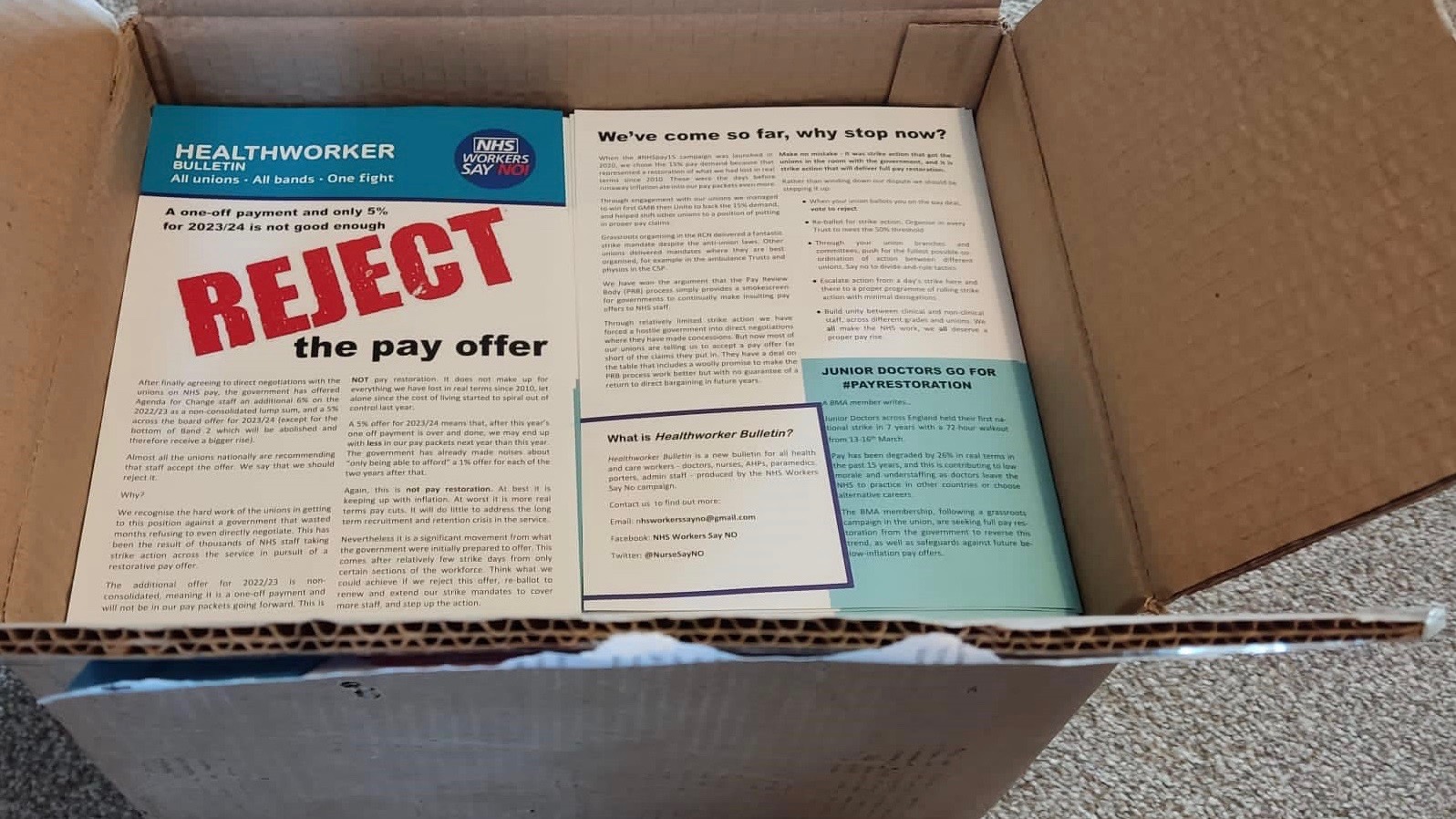Health workers in the UK are taking a stand against the policies of the Conservative (Tory) government which has refused to heed their demands for pay restoration and essential resources for National Health Service (NHS) staff. Nurses, support staff, ambulance drivers, and other workers of NHS England have strongly opposed the latest, below-inflation pay offer made by the authorities in March. In response, Unite the Union and the Royal College of Nursing (RCN) have called for strike actions before and after the upcoming International Workers’ Day on May 1. Fom April 11, around 60,000 junior doctors in England went on a four-day walkout demanding pay restoration to compensate for the 26% cut, since 2008, in their take-home wages.
Morning Star reported that Unite members at London’s Guy’s and St Thomas’ Hospital and the Yorkshire Ambulance Service will go on a one-day strike on May Day to demand wage hikes at par with inflation. Workers at three ambulance trusts—South Central, South East Coast, and West Midlands—and workers at The Christie NHS Foundation Trust, The Christie Pathology Partnership, East Lancashire Hospitals NHS Trust, and Sandwell and West Birmingham NHS Trust have announced that they will go on strike on May 2.
The strike ballot among Unite members in NHS England on whether to accept the revised pay offer made by the government on March 16 started on March 31 and will go on till April 28.
The government’s pay offer includes assurances of a permanent 5% pay rise on all pay points for 2023-24 and an additional one-off lump sum for 2022-23, which would rise in value up the NHS pay band—worth £1,655 (US$ 2,060.31) for staff on Band 2 (over 8%), £2,009 (US$ 2,501) for staff at the top of Band 5, and £3,789 (US$ 4,716.93) for the staff at the top of Band 9.
Repeated strike actions by health workers in NHS England since December 2022— demanding wages that can keep up with rising prices—has forced the UK government to negotiate on the NHS Pay Review Body’s pay recommendation for 2022-23.
Nurses affiliated with the Royal College of Nursing (RCN) have rejected the pay offer announced on March 16. Their ballot, which closed on April 14, approved a 48-hour strike from April 30 to May 2.
On April 19, Unite General Secretary Sharon Graham stated, “Unite the union has been clear from the start that we did not believe that the pay offer was good enough for NHS workers. Unite will be backing its members and preparing the ground for strike action.”
On April 21, RCN accused the Tory government of resorting to the threat of legal action against their upcoming strike. RCN General Secretary & Chief Executive Pat Cullen said: “This move is nakedly political. Nurses will not be gagged in this way by a bullying government.”
Meanwhile, UK Prime Minister Rishi Sunak insisted last week that NHS workers won’t get a big pay offer this year.
For over the past two years of the COVID-19 crisis, working class sections across the UK, including health workers, have been fighting for decent wages and more resources for public services in the country. The cost of living crisis triggered by the rise in food and energy prices brought on by the war in Ukraine and profiteering by energy giants, has worsened the living conditions of workers across the UK. Instead of addressing the issues faced by working class sections, the Tory government resorted to anti-worker legislation to criminalize strikes and protests. The corporate media houses have also unleashed a vicious misinformation campaign to malign the workers’ strike.
In December 2022, when ambulance workers went on strike in England and Wales, the military was deployed to take care of ambulance services affected by the strike.
Meanwhile, according to the latest report by the Office for National Statistics (ONS UK), the Consumer Prices Index (CPI) rose by 10.1% in the 12 months to March 2023. Citing the ONS report, MorningStar reported on April 19 that “a doubling in olive oil costs and significant increases in milk and ready meal prices saw food inflation hit an eye-watering 19.1% last month; the sharpest year-on-year rise for a single month since August 1977.”
Despite these conditions, the UK will hold the expensive coronation ceremony of Charles Windsor and his wife on May 6. In a poll conducted by YouGov, 51% of the respondents were of the view that the coronation should not be a state-funded event. Republican groups have called for major protests on ‘coronation day.’





